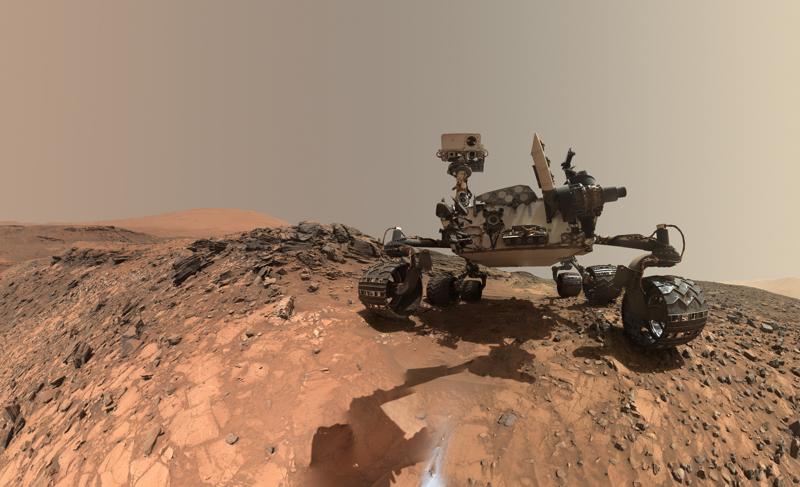NASA’s next Mars rover set for 2020 launch
The Mars 2020 rover will investigate a region of Mars where the ancient environment may have been favourable for microbial life, probing the Martian rocks for evidence of past life

The US space agency is ready to proceed with the final design and construction of its next Mars rover, currently targeted to launch in the summer of 2020 and arrive on the Red Planet in February 2021, NASA said.
The Mars 2020 rover will investigate a region of Mars where the ancient environment may have been favourable for microbial life, probing the Martian rocks for evidence of past life.
"This mission marks a significant milestone in NASA's Journey to Mars - to determine whether life has ever existed on Mars, and to advance our goal of sending humans to the Red Planet," said Geoffrey Yoder, Acting Associate Administrator of NASA's Science Mission Directorate in Washington.
Throughout its investigation, it will collect samples of soil and rock and cache them on the surface for potential return to Earth by a future mission.
"The Mars 2020 rover is the first step in a potential multi-mission campaign to return carefully selected and sealed samples of Martian rocks and soil to Earth," Yoder noted.
To reduce risk and provide cost savings, the 2020 rover will look much like its six-wheeled, one-tonne predecessor, Curiosity, which landed on Mars in 2012, but with an array of new science instruments and enhancements to explore Mars as never before, NASA said in a statement.
The Mars 2020 rover will use the same sky crane landing system as Curiosity, but will have the ability to land in a more challenging terrain with two enhancements, making more rugged sites eligible as safe landing candidates, the US space agency pointed out.
The Mars 2020 mission has already passed an extensive review process and a major development milestone.
Once a mission receives preliminary approval, it must go through four rigorous technical and programmatic reviews -- known as Key Decision Points (KDP) to proceed through the phases of development prior to launch.
Phase A involves concept and requirements definition, Phase B is preliminary design and technology development, Phase C is final design and fabrication, and Phase D is system assembly, testing, and launch. Mars 2020 has just passed its KDP-C milestone.
"Since Mars 2020 is leveraging the design and some spare hardware from Curiosity, a significant amount of the mission's heritage components have already been built during Phases A and B," George Tahu, Mars 2020 Programme Executive at NASA Headquarters in Washington said.
"With the KDP to enter Phase C completed, the project is proceeding with final design and construction of the new systems, as well as the rest of the heritage elements for the mission," Tahu added.
Catch all the Latest Tech News, Mobile News, Laptop News, Gaming news, Wearables News , How To News, also keep up with us on Whatsapp channel,Twitter, Facebook, Google News, and Instagram. For our latest videos, subscribe to our YouTube channel.


























